-
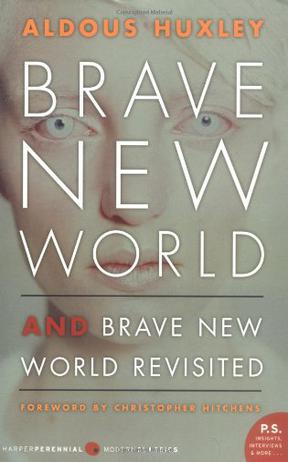
Brave New World and Brave New World Revisited (Perennial Classics)
In 1958, Aldous Huxley wrote what might be called a sequel to his novel Brave New World, published in 1932, but it was a sequel that did not revisit the story or the characters, or re-enter the world of the novel. Instead, he revisited that world in a set of 12 essays. Taking a second look at specific aspects of the future Huxley imagined in Brave New World, Huxley meditated on how his fantasy seemed to be turning into reality, frighteningly and much more quickly than he had ever dreamed. That he had been so prophetic in 1931 about the dystopian future gave Huxley no comfort. He was a far more serious man in 1958 -- at the age of 64 -- and the world was a very different place, transformed by the catastrophe of World War II, the advent of nuclear weapons and the grip of the Cold War. Looking behind the Iron Curtain, where people were not free but dominated by totalitarian power, Huxley could only bow to the grim prophecy of his friend (and, briefly, his student at Eton) George Orwell in the novel 1984. In the free world, however, the situation seemed even more to be one for despair. For it seemed to Huxley that people were well on their way to giving up their freedom and the sanctity of their individualism, in exchange for the illusions of comfort and sensory pleasure -- just as they had in Brave New World. Huxley heard, in 1958, a world full of the noise of what he called singing commercials, flooding the mass media, much like the hypnopaedia that shaped conscious thought in the world of the novel. He saw people everywhere in greater numbers taking tranquilizer drugs, to surrender to the unacceptable aspects of modern life -- not unlike the drug called soma that everyone takes in the novel. The power of propaganda, he believed, had been validated by the rise of Hitler, and the postwar world was using it effectively to manipulate the masses. Overpopulation was already a critical issue in 1958, and Huxley saw the emergence of an overpopulated world in which the chaos was, more and more, being countered by centralized control -- closer, it seemed, to the future of Brave New World, where the ultimate controlling capitalist of Huxley´s early years, Henry Ford, had become the equivalent of God. In the end, Brave New World Revisited despairs of what has come to pass, primarily modern humankind´s willingness to surrender freedom for pleasure. Huxley quotes from the episode of the Grand Inquisitor in The Brothers Karamazov -- ´For nothing,´ the Inquisitor insists, ´has ever been more insupportable for a man or a human society than freedom.´ Huxley worried that the cry of "Give me liberty or give me death" could easily be replaced by "Give me television and hamburgers, but don´t bother me with the responsibilities of liberty." He saw hope in the form of education, even the most pious, orthodox and inefficient kind of education -- education that can teach people to see beyond the easy slogans, efficient ends and anesthetic influences of propaganda. Perhaps the forces that now menace freedom are too strong to be resisted for every long, Huxley concluded. It is still our duty to do whatever we can to resist them. -
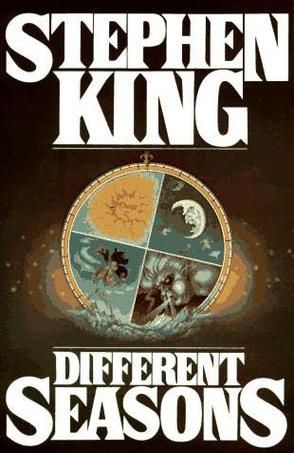
Different Seasons
Different Seasons,中文译名《四季奇谭》,是美国作家斯蒂芬·金于1982年出版的短篇小说集。《四季奇谭》包含四部短篇小说:《芮塔·海华丝与肖申克的救赎——春天的希望》、《纳粹高徒——夏日沉沦》、《总要找到你——不再纯真的秋天》、《呼·吸·呼·吸——暮冬重 生》。 前三部短篇都被改编成电影,其中以《肖申克的救赎》最为知名,深受广大影迷厚爱,并在1994年第67届奥斯卡电影金像奖上提名包括最佳电影在内的七项大奖,最终惜败给《阿甘正传》。《总要找到你》于1986年翻拍成电影,电影主题曲Stand By Me传唱至今,甚至红过电影本身。 《四季奇谭》的故事主题稍显沉重、严肃,与斯蒂芬·金见长的恐怖小说有些不同,但同样十分精彩。1982年出版,便一举拿下《纽约时报》畅销书排行榜冠军,至今在全球范围内已被翻译成30余种语言。 -
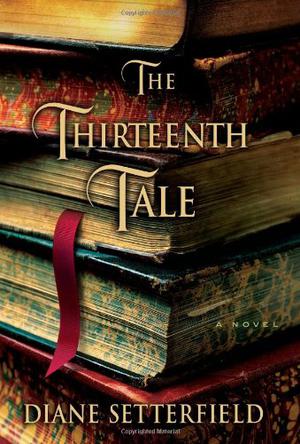
The Thirteenth Tale
When Margaret Lea opened the door to the past, what she confronted was her destiny. All children mythologize their birth...So begins the prologue of reclusive author Vida Winter's collection of stories, which are as famous for the mystery of the missing thirteenth tale as they are for the delight and enchantment of the twelve that do exist. The enigmatic Winter has spent six decades creating various outlandish life histories for herself -- all of them inventions that have brought her fame and fortune but have kept her violent and tragic past a secret. Now old and ailing, she at last wants to tell the truth about her extraordinary life. She summons biographer Margaret Lea, a young woman for whom the secret of her own birth, hidden by those who loved her most, remains an ever-present pain. Struck by a curious parallel between Miss Winter's story and her own, Margaret takes on the commission. As Vida disinters the life she meant to bury for good, Margaret is mesmerized. It is a tale of gothic strangeness featuring the Angelfield family, including the beautiful and willful Isabelle, the feral twins Adeline and Emmeline, a ghost, a governess, a topiary garden and a devastating fire. Margaret succumbs to the power of Vida's storytelling but remains suspicious of the author's sincerity. She demands the truth from Vida, and together they confront the ghosts that have haunted them while becoming, finally, transformed by the truth themselves. The Thirteenth Tale is a love letter to reading, a book for the feral reader in all of us, a return to that rich vein of storytelling that our parents loved and that we loved as children. Diane Setterfield will keep you guessing, make you wonder, move you to tears and laughter and, in the end, deposit you breathless yet satisfied back upon the shore of your everyday life. -
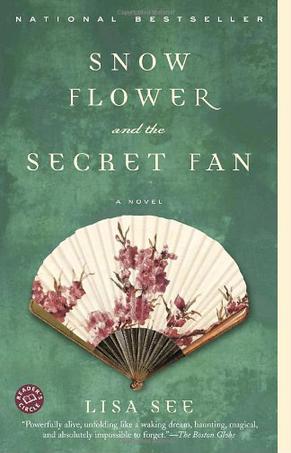
Snow Flower and the Secret Fan
-
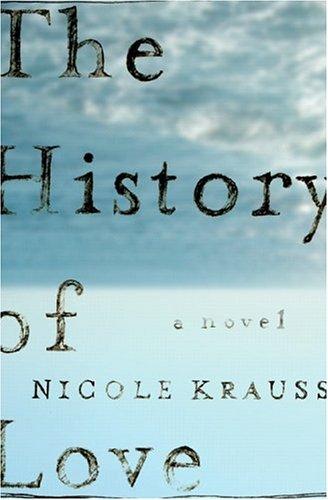
The History Of Love
Leo Gursky is barely surviving, tapping his radiator each evening to let his upstairs neighbor know he's still alive. But life wasn't always like this: 60 years ago, in the Polish village where he was born, Leo fell in love and wrote a book. And though Leo doesn't know it, that book survived, inspiring fabulous circumstances, even love. -
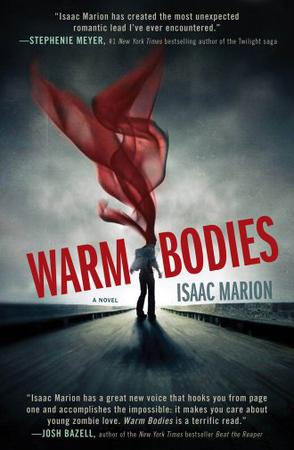
Warm Bodies
R is a young man with an existential crisis--he is a zombie. He shuffles through an America destroyed by war, social collapse, and the mindless hunger of his undead comrades, but he craves something more than blood and brains. He can speak just a few grunted syllables, but his inner life is deep, full of wonder and longing. He has no memories, noidentity, and no pulse, but he has dreams. After experiencing a teenage boy's memories while consuming his brain, R makes an unexpected choice that begins a tense, awkward, and stragely sweet relationship with the victim's human girlfriend. Julie is a blast of color in the otherwise dreary and gray landscape that surrounds R. His decision to protect her will transform not only R, but his fellow Dead, and perhaps their whole lifeless world. Scary, funny, and surprisingly poignant, Warm Bodies is about being alive, being dead, and the blurry line in between.